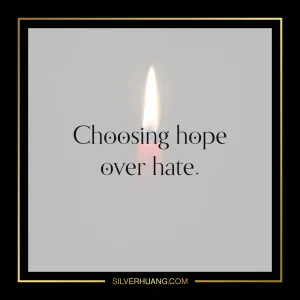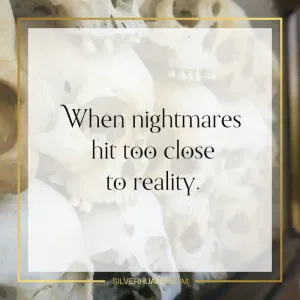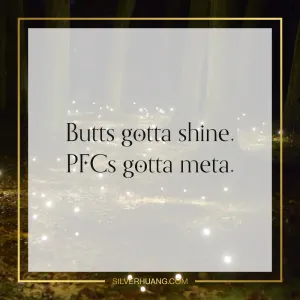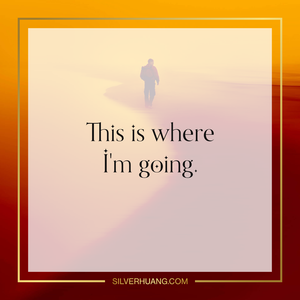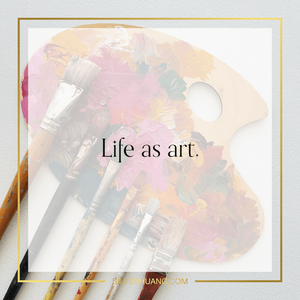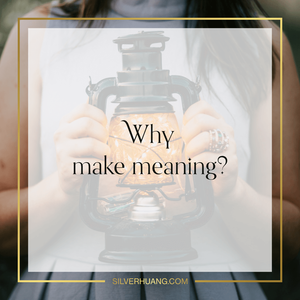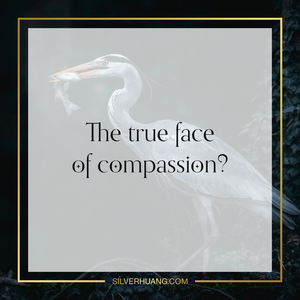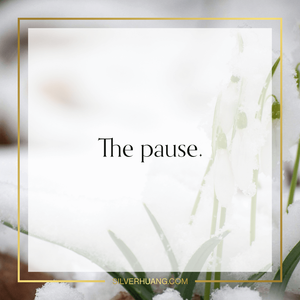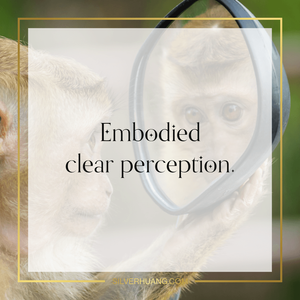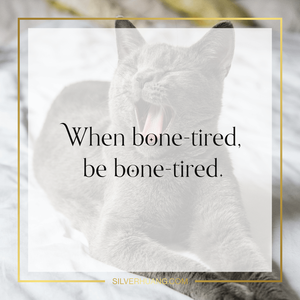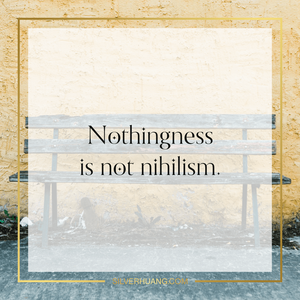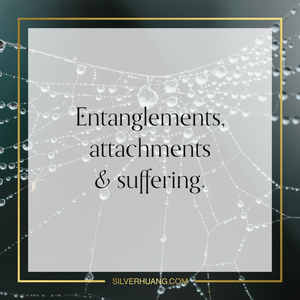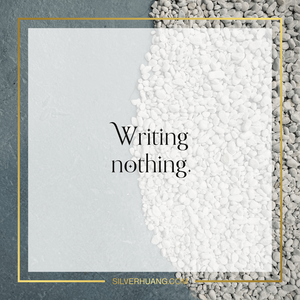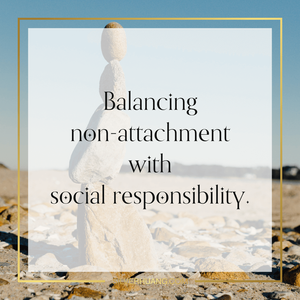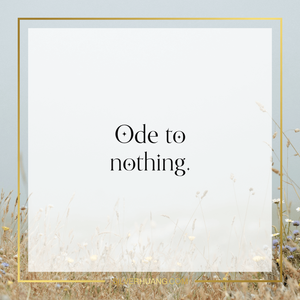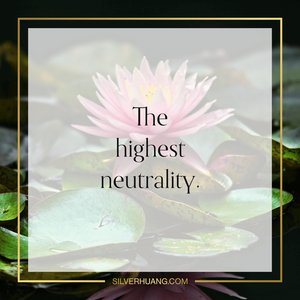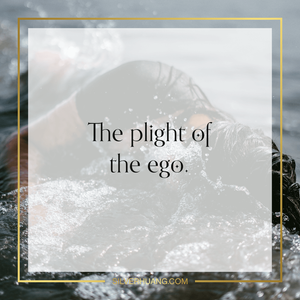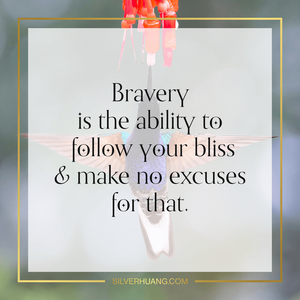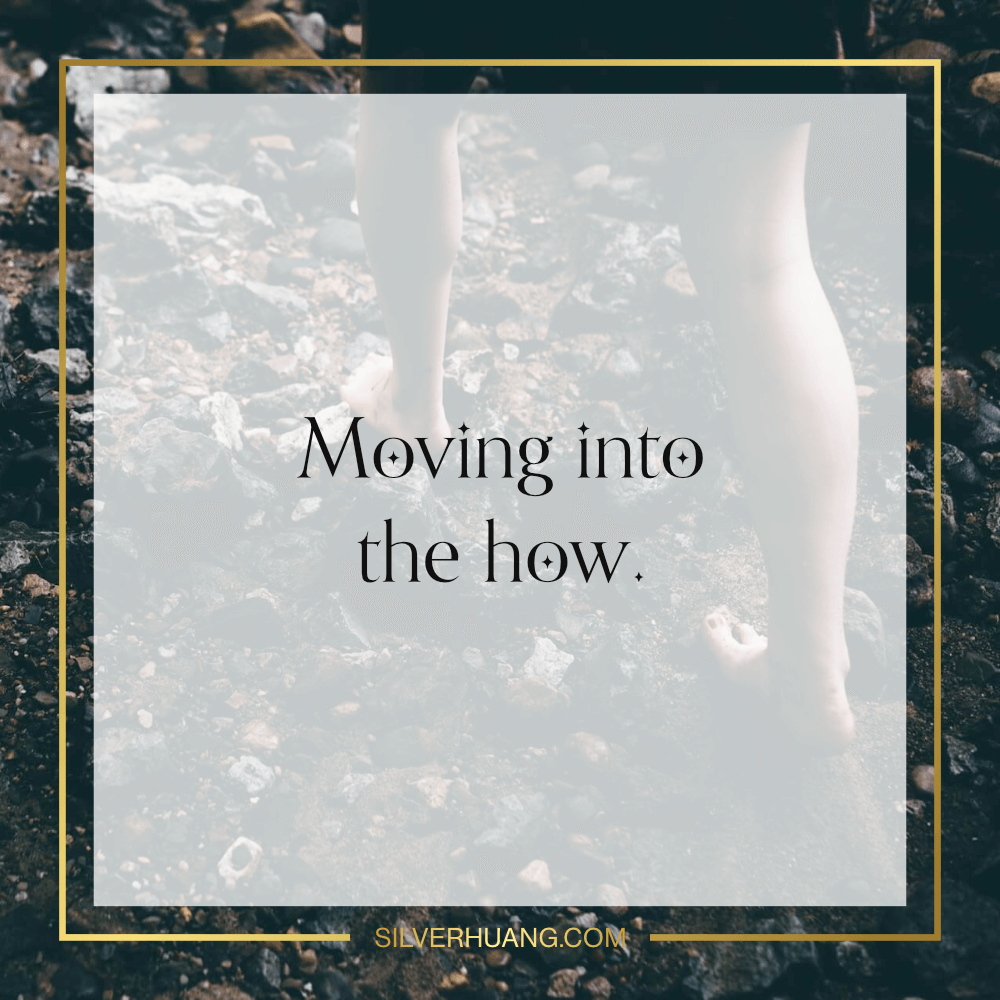
Moving into the how.
I wrote to a friend last week, "I'm evolving again, and I am entering the next chapter. It seems I'm always chasing questions and unknowns." Or, as another friend said to me, "It's like life, or source, is dropping breadcrumbs, and you're following them."
In my post Why make meaning?, I asked:
- Why do I exist?
- Why should I continue existing?
- And how?
I spent the last three months exploring the concept and practice of nothingness:
- Because I needed to realize that I was constructing my own cosmogony,
- Because I needed to construct my own reasons for existing.
I was answering the first question: A work that will never be finished and will be ever evolving. I've arrived at a good enough space with my explorations with that. Time to move on to, and begin work on, the second question.
During a chat with my friend last week, I shared:
Of the three questions, I find that working on the third question is what helps me answer the second question.
My hypothesis is that we can't answer the second question without having first worked on the third. Ergo, to answer the second question, we have to skip it altogether and go straight to the third, before finding our way back to the second.
Or, maybe that's just me. 🤷🏻♀️ Regardless, I find myself at the third question.
How do I want to exist?
The practicalities. This is where I confront the question of, "How does one approach personal and collective challenges deeply yet lightly at the same time?"
- Deeply because I care so deeply, it hurts.
- Lightly because I have no control, in the grand scheme of things.
The thing about shifting from chapter to chapter in life is that the transitions are rarely clear-cut, and often sneak up on me before I'm fully aware that change is afoot.
Thus, it was that, exactly one month ago, I found myself exploring the question of, "What is 'the political'?"
- What is "political space"? What are the spaces in which we find ourselves thinking and talking about "politics"?
- Thus, what, then, is political action; what does it look like, and what does it entail?
I was exploring the third question before I knew I was. Life is non-linear, after all.
I get the sense that the third question, for me, is to be discovered within or excavated from this space of the political.
Why the political? To me, politics, and therefore the political, involve:
- Any decision-making that has to do with the distribution and utilization of power and resources within and between groups of people, and
- How that distribution affects the quality of life of individuals and subgroups within and outside groups, as well as intragroup and intergroup relations and dynamics, and
- How that utilization impacts our local and global non-human environments and ecologies.
It seems fitting that my contemplations on this are taking place with the backdrop of the 2024 United States presidential election.
For millions of women in the United States right now, the personal is political in the most visceral of ways: Politics is, quite literally, putting their lives at risk. How much more personal can it get?
And let's not forget that trans, Black and indigenous folks' lives were already at risk, long before this. What about disabled folks still fatally vulnerable to COVID, though the rest of the world has decided COVID no longer matters?
For these groups, and more, they have been living the personal impacts of the political for longer, and in ways more visceral, than other, more privileged, groups care to imagine.
The personal is political because decision-making at any level of the systems which we are all a part of affects privileges and lives left, right, top and bottom.
In terms of answering the third question, for me, I don't see any way I can answer that without stepping into the political because I care and this matters to me.
Because we are all connected.
It's not like I'm going to run for any office. 🤣 My health simply wouldn't permit it, and a person with social differences like myself would not survive, much less make any sustainable difference, there.
Hence, what does it mean, for a person like myself, living with differences and disabilities, to find a how within the political? And in a way that aligns with my whys?
- How do I want to navigate this space that is the political?
- What do I expect myself to do here?
- What are the outcomes I want, or dream of?
In a way, I already know how I want to answer the third question, and the questions that follow from that.
It was as early as late September, while wrestling with the question of how to be of service amid the dangers of deluding oneself into thinking one can "teach" life or meta-life, that this intuitive insight dropped:
This is not something that can be taught; you can only walk and know that walking is enough.
As I've mentioned before, I don't think in language. Thus, intuitive insights don't show up in words, either; I have to translate what I receive, and English is an inadequate substitute.
I translated what I received here as walking because what I received was a sense of moving through space and time as I am in each moment. This translation is already way more unwieldy than the first, and still hopelessly inadequate. There are so many layers of nuance that would require paragraphs of translation.
For example, I could talk about how "as I am" refers to a wholeness that requires the physicality of movement in addition to existential movement, and how the physicality of movement entails action to be taken, and not just talk.
What does this action look like?
I will end my post here, and leave the words of others to paint the approximation of what I'm still in the process of sensing and wording for myself.
Their words, to me, are not doctrine but lights of inspiration. Perhaps they will inspire you, too.
Jenny Odell, from her book How to Do Nothing:
Some hybrid reaction is needed. We have to be able to do both: to contemplate and participate, to leave and always come back, where we are needed. In Contemplation in a World ofAction, Merton holds out the possibility that we might be capable of these movements entirely within our own minds. Following that lead, I will suggest something else in place of the language of retreat or exile. It is a simple disjuncture that I’ll call “standing apart.”
To stand apart is to take the view of the outsider without leaving, always oriented toward what it is you would have left. It means not fleeing your enemy, but knowing your enemy, which turns out not to be the world—contemptus mundi—but the channels through which you encounter it day to day. It also means giving yourself the critical break that media cycles and narratives will not, allowing yourself to believe in another world while living in this one. Unlike the libertarian blank slate that appeals to outer space, or even the communes that sought to break with historical time, this “other world” is not a rejection of the one we live in. Rather, it is a perfect image of this world when justice has been realized with and for everyone and everything that is already here. To stand apart is to look at the world (now) from the point of view of the world as it could be (the future), with all of the hope and sorrowful contemplation that this entails.
[...]
[S]tanding apart represents the moment in which the desperate desire to leave (forever!) matures into a commitment to live in permanent refusal, where one already is, and to meet others in the common space of that refusal. This kind of resistance still manifests as participating, but participating in the “wrong way”: a way that undermines the authority of the hegemonic game and creates possibilities outside of it.
Harrison Owen, founder of the practice of Open Space Technology, from his book The Practice of Peace:
How shall we understand Peace in ways that allow the inclusion and transcendence of the harsher realities of our lives? Peace without chaos, confusion and conflict is no Peace, not because we would not prefer it that way, but because each member of this unholy trinity makes a positive contribution to the process of living. Equally, Peace without ending and death is productive of an idealized, static life, stuck in its ways, precluding the possibility of any sort of evolution.
[...]
Peace then is a process, not a thing; a journey and not a destination. It is flow and not a state. Peace is the dynamic interrelationship of complex forces (including chaos, conflict and confusion) productive of wholeness, health and harmony. The Practice of Peace is the intentional creation of the requisite conditions under which Peace may occur. Peace, as far as I am concerned, is infinitely more than the cessation of hostilities, which often takes the form of bombing the offending parties into submission until they can no longer fight back. And Peacemaking neither starts nor ends at the negotiating table, for the objective is not just a set of treaty terms acceptable to all parties, but rather the renewal of meaningful and productive life for the planet, the nation, businesses, social institutions, the family, and each one of us.
Please do not expect a radical, new approach. In fact, I believe each and every one of us already has both the knowledge and skills necessary, and the fundamental mechanisms are essentially “hardwired” into our being. We have only to remember what we know, and practice what we are. I concede that the apparent simplicity of these affirmations verges on the naive. It may also be true that a blinding flash of the obvious may be good for the soul.
[...]
I will suggest that self-organization drives towards Peace and, when freely operative, is generative of the dynamic interrelationship of complex forces productive of wholeness, health and harmony.
It is timely that this video by Irene Lyon, quoting Sheryl Field, dropped just a few days ago.
Moshe has said, in various ways, that, "To correct is incorrect." [...] A person moves always the best way that they can. They're recruiting and doing things in a way that, while it might not be pleasing to see on the outside, and it might not even feel good to them, it is the solution to the task at hand, given their history, given their experiences, and given what they have to use at that given moment.
Our primary role in that context is to allow an individual [...] the opportunity to sense and feel themselves as they are in that present moment, and offer them some alternatives, offer them some other possibilities of ease, organization, effectiveness, expediency. Offer them the possibility that they could make another selection.
So, within the context of functional integration, we meet a person where they are, as they are, without making that type of evaluation or value judgement, and saying, "We know what you feel to yourself. And the thing you feel doesn't fit. It needs to be corrected." We don't think this way. We rather think, "Wow, you are making do with you as you are, and look at all you are that you haven't even yet discovered!" And then offering that person the time, the real time, to make those discovereries. To go slow enough and meet them where they are."
And, finally, Chen Guying, commenting on Lao Zi and the Dao De Jing in his book The Annotated Critical Laozi:
Laozi thus praises the Dao as “acting but not relying [on things]” (Chapter 2). He even closes the Laozi by advocating “acting without contending [against the situation]” (Chapter 81), which he identifies as characteristic of the sage. Laozi encourages people to act. He promotes active engagement with the world and enactment of subjective agency in ways that allow for the natural development of the things of the world, including other humans. At the same time he also discourages people from trying to control things or contend for possession of things, as well as from extending such desire for personal possession to the fruits of one’s efforts. He thus motivates people to action and even to help themselves, only not by means of being controlling, relying too heavily on others, coercion, or creating conflict. One should not act selfishly or greedily.
